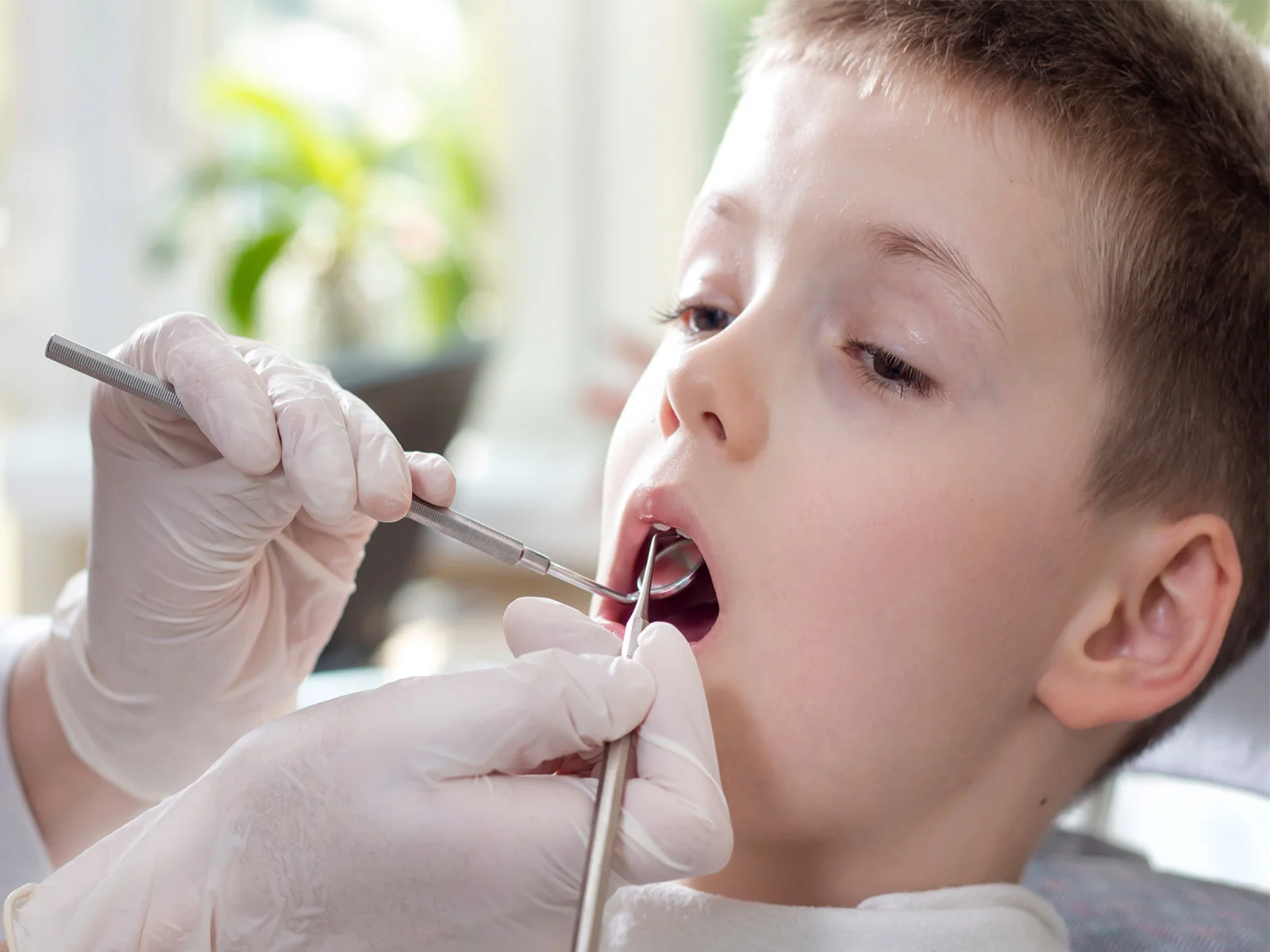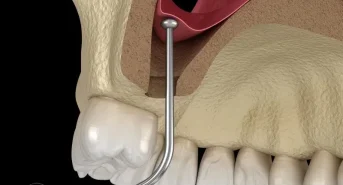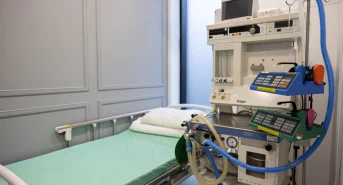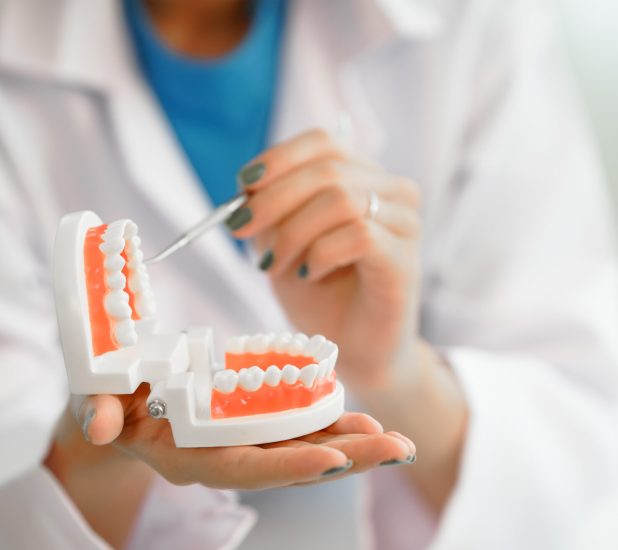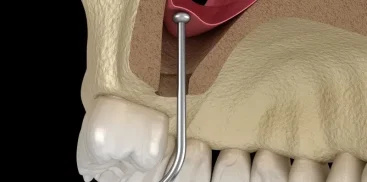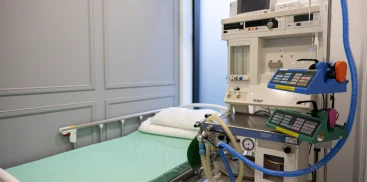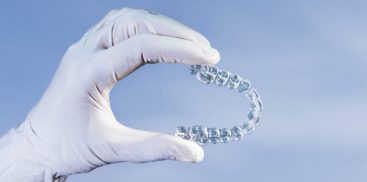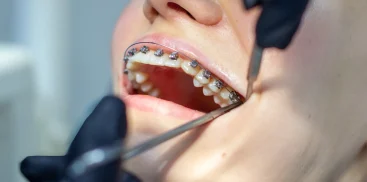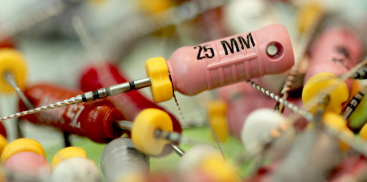Milk teeth are formed already in the initial phase of fetal life, and they appear in the child’s mouth around 6 months of age. It is worth following your toddler’s oral hygiene from the very beginning and taking care of the child’s primary teeth, because caries of primary teeth can have far-reaching consequences, also affecting the condition of permanent teeth in the future. Find out when the first milk teeth appear, when they fall out and how to care for them to avoid tooth decay and, as a consequence, the problem of decayed permanent teeth.
What are primary teeth?
Milk teeth are the first teeth whose buds are already present in the fetus in the 4th week of pregnancy. A child may be born with one or even several primary teeth, but they usually begin to appear in the mouth between the 5th and 10th month of the child’s life (slightly later in the case of premature babies). Primary teeth fall out around the age of 6. Permanent teeth emerge gradually as primary teeth fall out on their own.
How do people grow baby teeth?
Baby teeth usually appear in the following order:
- lower first primary incisors, which erupt around 6-10 months of the child’s life,
- upper first deciduous incisors, which erupt around 8-12 months of age,
- upper second primary incisors, which erupt around 9-13 months of age,
- lower second primary incisors, which erupt around 10-16 months of age,
- upper first primary molars, which erupt around 13-19 months of age,
- lower first primary molars, which erupt around 14-18 months of age,
- upper deciduous canines, which erupt around 16-22 months of age,
- lower primary canines, which erupt around 17-23 months of age,
- lower second primary molars, which erupt around 23-31 months of age,
- upper second primary molars, which erupt around 25-33 months of age.
It is worth knowing that the permanent tooth buds are already formed and are located in the second rowe behind the primary teeth, on the tongue side.
Structure of a primary tooth
Milk teeth have a thinner enamel layer compared to permanent teeth, so tooth decay is a serious threat to them. For this reason, proper oral hygiene of the child is crucial. Even before the baby teeth appear, it is worth washing your baby’s gums with chamomile infusion. As baby teeth emerge, your child should get used to brushing their teeth to remove plaque and harmful bacteria.
How many baby teeth does a child have?
There are 20 primary teeth in the mouth. A child’s jaw is designed to accommodate a smaller number of primary teeth than permanent teeth. A toddler’s dental arches are semicircular in shape and contain 4 incisors, 2 canines and 4 molars.
When is the first dentist consultation with a child?
It is worth taking your child for the first visit to the dentist before teething, and then after the child turns one year old. The first adaptation visit is recommended when the child is 2-3 years old. Its goal is to accustom the baby to visits to the dentist’s office.
When do baby teeth fall out?
Baby teeth fall out gradually. This process begins around 5-6 years of age (earlier in girls) and lasts until around 12 years of age.
Dental caries of primary teeth – is it possible?
In the case of caries of primary teeth, changes may appear immediately when the teeth break through the gums and progress very quickly. Risk factors include a diet rich in products containing simple sugars and insufficient oral hygiene of the child. Caries lesions affect the enamel and dentin, and often also the nerve of the tooth. Infants fed sweetened milk and fruit juices may develop the so-called Baby bottle tooth decay – lesions appear in children who are just a few months old.
Milk teeth – care and treatment
In the case of primary teeth, proper care is very important. Baby teeth should be regularly cleaned Do not wash with toothpaste intended for children. Fluoride-releasing toothpastes are recommended to strengthen the enamel. If caries appears in primary teeth, treatment should not be delayed. Dental caries is an infectious disease that has a negative impact on the child’s body and may cause subsequent malocclusion. Removing a baby tooth disrupts the natural rate at which permanent teeth appear, so it is recommended to avoid such a situation. You should take care of both the upper incisors, lower canines and molars. They are all equally important and necessary. Untreated caries in primary teeth may also contribute to permanent teeth becoming infected as soon as they appear in the mouth.
Come for a check-up visit with your child to Warsaw Dental Center
Regular checkups and treatment of primary teeth are crucial to ensure that your child has healthy permanent teeth in the future.
When choosing a dental clinic, it is worth taking into account its reputation and customer opinions. Warsaw Dental Center is a good place for a first visit to the dentist with a small child. Experienced staff will assess the condition of primary teeth and advise on how to care for them. If treatment is necessary, it will be painless and stress-free for the baby.
